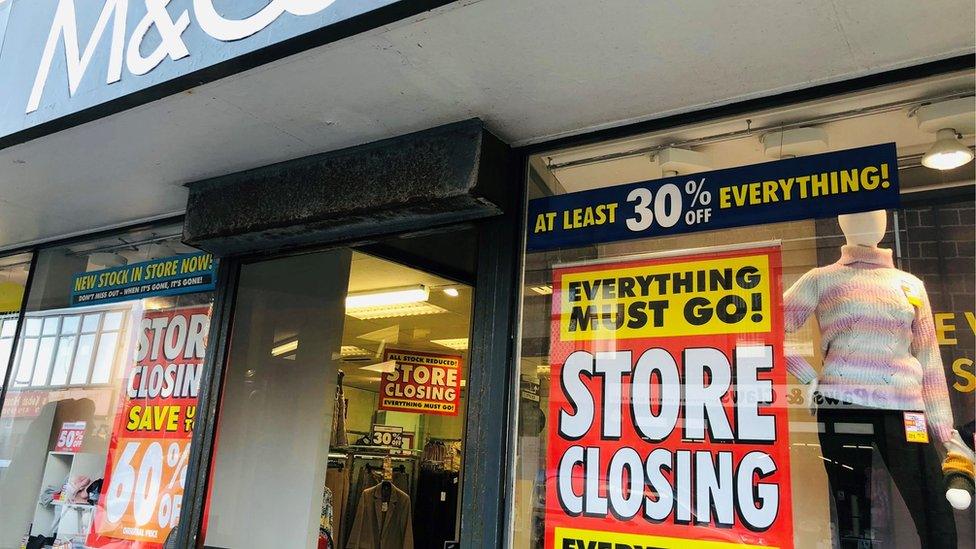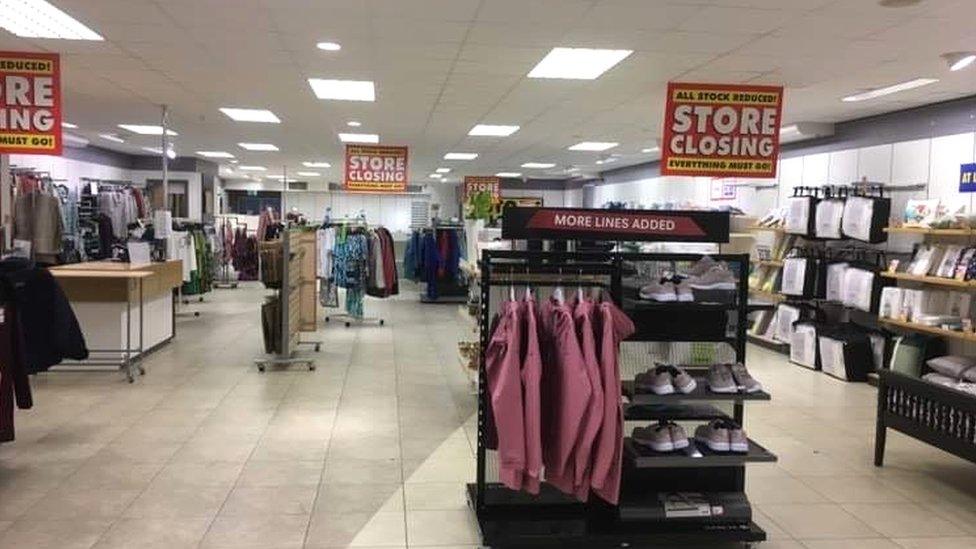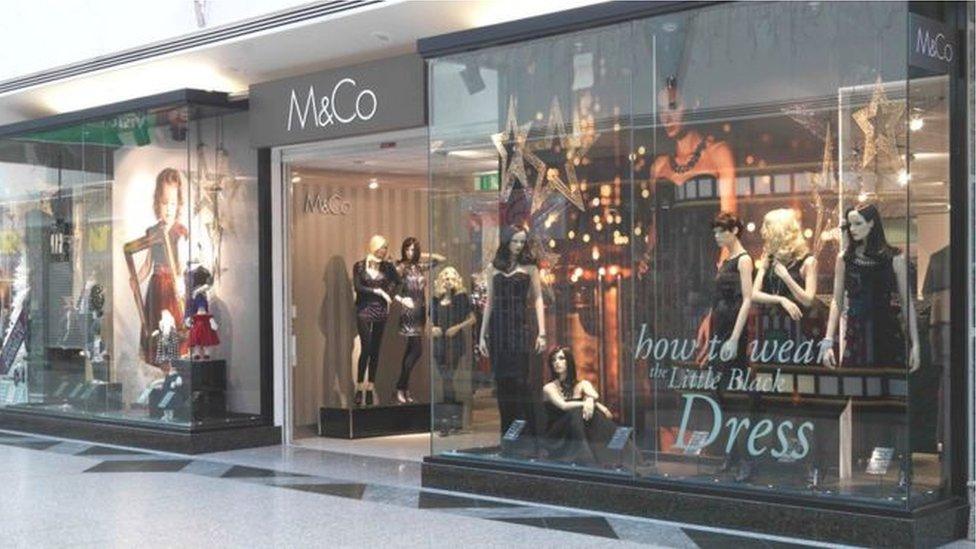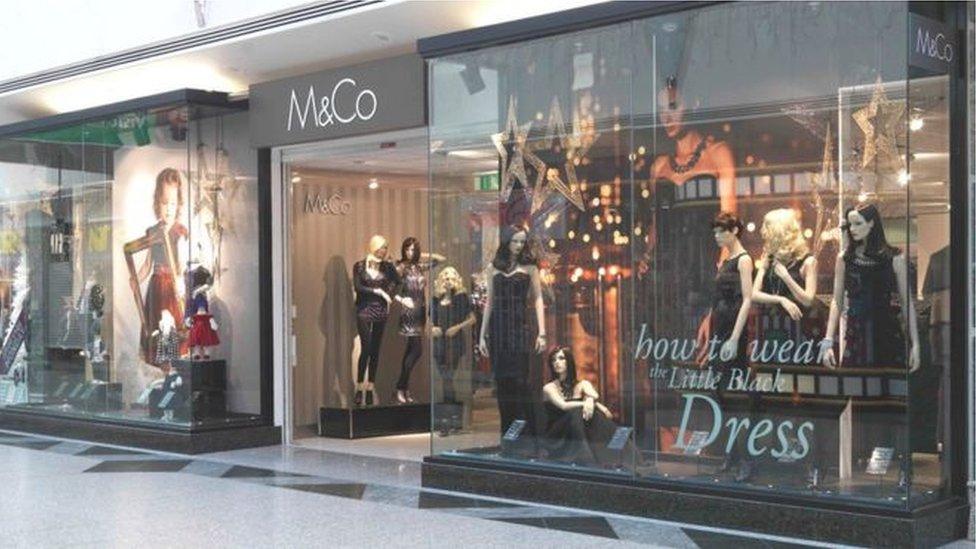M&Co: Renfrewshire clothing chain to close all 170 stores
- Published
- comments

The M&C store in Peterhead is one of the 170 which will be closing
Clothes retailer M&Co is to close all of its 170 stores this spring, with the loss of almost 2,000 jobs.
The Renfrewshire-based company, which used to be known as Mackays, is one of Scotland's best known clothing chains.
It appointed administrators for a second time at the end of last year, after previously collapsing in 2020.
The brand has been bought by AK Retail Holdings but the purchase did not include physical stores, meaning they will now close down at Easter.
The closures were announced in social media posts by branches across the UK.
The posts, on Facebook, began: "Unfortunately we haven't received the news we would have hoped for during our administration period, and would like to share this news with you.
"As we haven't received any funded, deliverable offers that would result in the transfer of the company's stores or staff to a potential buyer, this means that all of our stores will close."

Mackays was established as a pawnbrokers in Paisley, Renfrewshire, in 1834.
It switched to selling clothes in 1953, led by brothers Len and Ian McGeoch, and re-branded as M&Co in 2005.
It previously went into administration in 2020, when it lost 47 stores and 380 staff, but assets were immediately bought back by the family that built it up.
AK Retail Holdings, which has bought the brand, is the owner of plus size retailer Yours Clothing.


M&Co had appeared to be one of the high street survivors, with an important, reassuring presence, familiar staff and typically older shoppers who don't want to travel into the city or shop online.
It had a clever strategy for where it located, away from the main and most expensive retail locations, finding a geographical niche.
It understood its customer base - typically an older, budget-conscious, female shopper who was less likely to shift to online shopping and went to M&Co not just for her own clothes, but also for her husband's and to get something for her grandchildren too.
The company bosses realised these were not going to be customers for ever. It needed to refresh, it found trading more difficult before Covid because they were importing lots of products from Europe and trading was difficult due to economic and political uncertainty.
It was going through that process of refreshing its range and brands when Covid really knocked it. The first year of Covid saw turnover down from £200m to below £50m.
While footfall on the high street has recovered to some extent, it is not back to were it was, and those customers are the ones least likely to have come back. So it accelerated the decline in the M&Co demographic.
M&Co had an important role in Islands towns such as Lerwick, Kirkwall and Stornoway, and on the mainland in places like Thurso, Fort William, Castle Douglas, Hawick, Banff, Buckie, Nairn and Montrose, county towns like Lanark and Ayr, central belt towns like Coatbridge, Wishaw, Bathgate and places on the edge of cities as well, including Broughty Ferry, Musselburgh, Newton Mearns and Kirkintilloch.
Some of these have strength in independent shops but also tend to be places which are quite precarious for retail.

Ewan MacDonald-Russell, deputy head of the Scottish Retail Consortium, said the impending closure of M&Co was horrible news for employees and a blow to Scotland's high streets..
He added: "This sad news reaffirms the need for government to think very carefully before heaping any additional burdens on Scotland's hard-pressed retail industry.
"It also underlines the need for the devolved administration to think again about the lack of any additional rates relief comparable to that which retailers, hospitality and leisure businesses in Wales and England are entitled to for the coming year."
- Published11 December 2022

- Published5 August 2020
